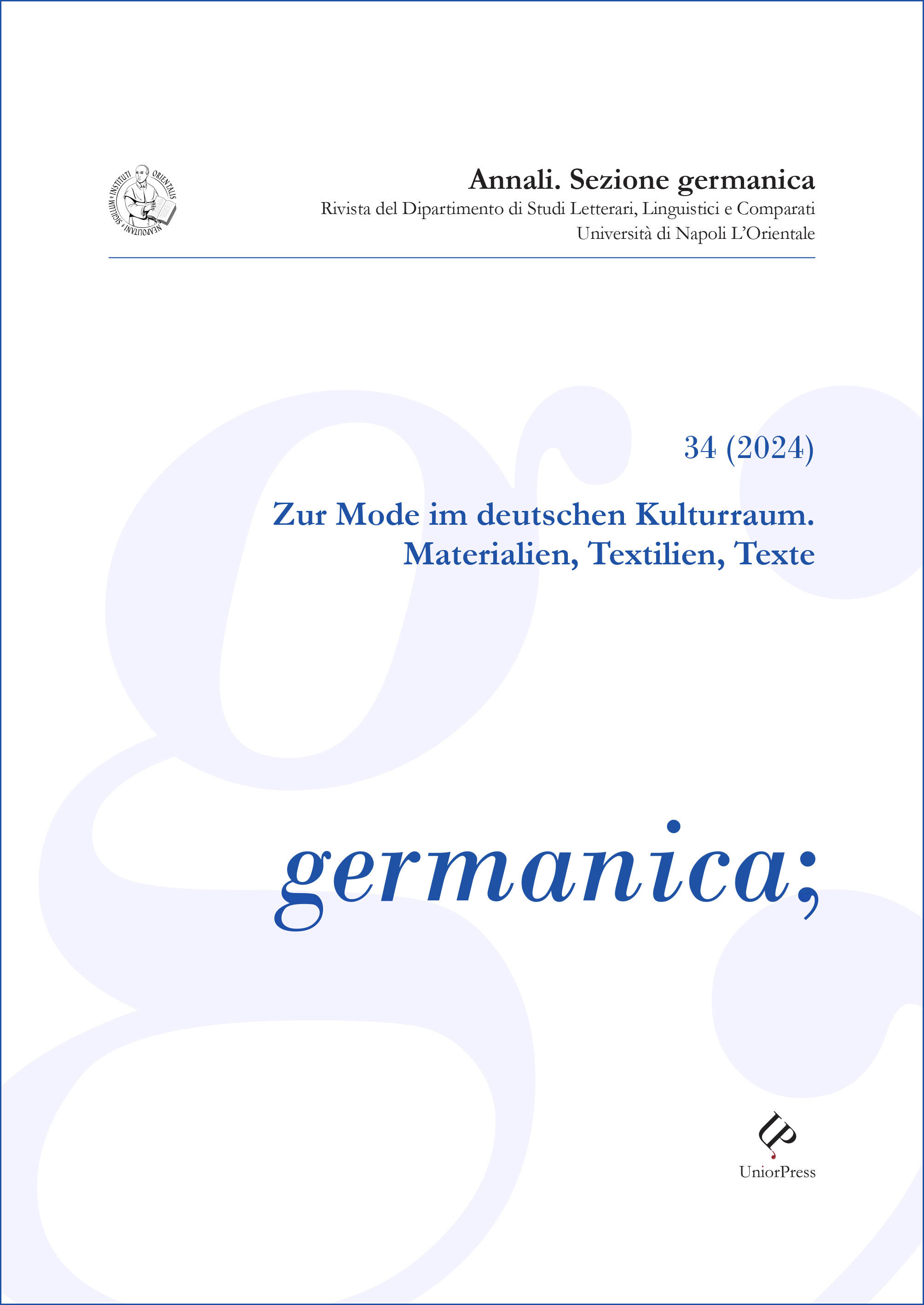Oberflächen-Ekel. Zur (Un-)Moral der Kleidermode bei Friedrich Theodor Vischer und Christian Kracht
Keywords:
disgust, surface, (im)morality, fashion, literatureAbstract
In German-speaking discourse, fashion often signals immorality: after all, it is about the hedonistic preoccupation with material surfaces and the consumption of goods and brands, which is often discredited as ‘superficial’. The extent to which surface and depth, fashion and (im)morality are intertwined is shown in two literary examples from the 19th and 20th centuries: Friedrich Theodor Vischer’s polemical contributions Mode und Cynismus (1879) and Christian Kracht’s pop novel Faserland (1995). In both examples, the preoccupation with objects of fashion reveals itself as a tipping point: where its moral devaluation is intended, its glamorous aspects appear at the same time, whereas its celebration dominates ostensibly, it is ultimately doomed to death and proves to be morally questionable.
Downloads
Published
How to Cite
Issue
Section
License
Copyright (c) 2025 Julia Bertschik

This work is licensed under a Creative Commons Attribution 4.0 International License.
The authors who publish in this Journal accept the following conditions:
- The authors retain the rights to their work and give the magazine the right to first publish the work, simultaneously licensed under a Creative Commons License - Attribution which allows others to share the work indicating the intellectual authorship and the first publication in this magazine.
- Authors may adhere to other non-exclusive license agreements for the distribution of the version of the published work (eg deposit it in an institutional archive or publish it in a monograph), provided that the first publication took place in this magazine.
- Authors can disseminate their work online (e.g. in institutional repositories or on their website) before and during the submission process, as it can lead to productive exchanges and increase citations of the published work (See The Effect of Open Access).


